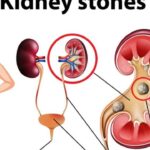Many of us know what sexually transmitted diseases (STDs) are, but what happens if you end up contracting an STD? Do STDs go away, or do they require treatment? Here, we shall discuss the different types of STDs and find out if they can be cured without medication.
STDs can be dangerous for your health. So, you must learn and prevent the chances of getting the disease. There are different STDs; this is why it is advised to use protection when having sex and go for check-ups frequently.
If you have an STD, you don’t need to hide it, the earlier you commence treatment the better for you. Many STDs are curable with the right medication. However, some can last more than others if not treated promptly.
Types of STDs
There are two main categories of sexually transmitted diseases: They are bacterial and viral. Viral STDs are STDs caused by viruses; viruses are small infectious agents that can only reproduce inside a living host cell.
The viral STDs are HIV, herpes, and HPV. These infections can be transmitted sexually and through blood transfusion, the use of infected needles, and from an infected mother to her baby during childbirth.
Bacterial STDs, on the other hand, are sexually transmitted diseases that originate from bacteria, and bacteria are single-celled microbes that can exist inside and outside the human body.
Some of the bacterial sexually transmitted diseases are chlamydia, gonorrhea, and syphilis. These infections are usually passed through sexual intercourse with an affected partner.
Depending on the type of STD, the symptoms differ. It is also important to note that anyone sexually active is never too young or too old to contract an STD. Using protection during intercourse and getting checked for an STD at least once a year are some of the ways you can avoid getting an STD.
If you think you may have been infected with an STD, you need to go to a doctor and get checked immediately. Certain STDs present little or no symptoms at all, meaning you could be having the disease and you do not know it.
The only way of knowing whether you have an STD is to go for an STD test at a nearby clinic. Planned Neighborhood and Urgent Care also do std tests at their various locations.
Do STDs Go Away?
Have you ever asked yourself whether sexually transmitted diseases can go without medication? The answer is no. STDs do not self-heal, and the patient will still need to visit a doctor to receive the necessary treatment. Take note: if an STD is not treated, it may cause other health complications.
STDs are diseases transmitted through sexual practices, it could bacteria, viruses, or parasites. Certain STDs have symptoms such as genital sores or discharge, while others may not show symptoms at all.
Apart from herpes, and hepatitis B, you can use antibiotics to treat STDs. Take note that you can only use antibiotics to treat bacterial infections, while antiviral medications are for viral infections. Presently, there is no cure for sexually transmitted infections for genital herpes, HIV, etc.; however, there are strategies to control the symptoms.
The dangers of not treating STDs
If you think that STDs are something not serious and can go away on its own, you have to ‘rethink’. At first, the symptoms appear mild, but when it deteriorates, it can cause a serious health challenge.
Failure to treat that small infection increases your vulnerability to other illnesses serious enough to kill you. In addition, if the STD is left untreated, the person may experience constant pain and discomfort. Perhaps you believe that a little itch or a burn, for example, is not a very serious issue, but gradually it becomes much more dangerous. Do not let this happen to you.
Treatment Options
Having an STD can be worrisome; fortunately, though, there are treatment options. It is either to cure or manage the infection.
Chlamydia
Chlamydia is one of the common types of STI; people with infection can use antibiotics. The two primary antibiotics to treat chlamydia are azithromycin and doxycycline. When taking any of these drugs, the patient must complete the dose as prescribed by the doctor. Also, while on this drug, every sexual relationship must be put on hold.
Gonorrhea
Another type of STI you need to know is gonorrhea. It is an infection that can also be treated with antibiotics. The recommended antibiotics for gonococcal or gonorrhea infections are ceftriaxone and azithromycin. Like chlamydia, it is vital to take all the prescribed antibiotics to prevent the recurrence of the disease.
Syphilis
Syphilis is a bacterial disease that can be cured with antibiotics; however, individuals with immunodeficiency diseases cannot be cured with antibiotics. The treatment for syphilis is antibiotics, and the preferred first-line antibiotic is penicillin. The type and duration of the treatment will depend on the stage of the infection.
Herpes
Herpes is an incurable viral STD, though manageable. Antiviral drugs like Acyclovir, Valacyclovir, and Famciclovir will assist in decreasing the number of occurrences of herpes outbreaks. These drugs can also reduce the chances of spreading the virus to other partners during sexual activities. You need to see a doctor and find out the best method for managing the symptoms.
HIV
The human immunovirus is a virus that affects the body’s systems, particularly the immune system. There is no current cure for HIV, however, there are antiretroviral drugs that can control the virus and enable those infected with HIV to live a normal life. Anyone diagnosed of HIV, should start the treatment as soon as possible because if HIV, is not well managed, it can progress to AIDS.
HPV
The human papillomavirus (HPV) is a bacterial STD that causes genital warts and some forms of cancer. According to some researchers, it has no cure, but there are treatments to suppress the symptoms.
One can topical treatments that contains chemical agents, cryotherapy, and surgical procedures to remove genital warts. In addition, getting the HPV vaccine is the most effective way to prevent the HPV virus.
Hepatitis B and C
Hepatitis B and C are both viral diseases that can affect the liver organ, and if not treated, it can lead to liver disease. There are medications to treat the virus and minimize the chance of exacerbations. If you have either hepatitis B or C, there is an urgent need to see your healthcare provider more often to keep a close check on the liver.
Prevention strategies for STDs
- Practice safe sex
Condoms are one of the most effective barrier methods of protecting against STDs and should be used during vaginal, anal, and oral sex. In some cases, condoms help minimize contact with infected body fluids that may cause the spread of the virus. However, condoms are not 100 percent safe; abstinence is the key.
- Limit sexual partners
Reducing the number of sexual partners also reduces the likelihood of contact with STDs. Multiple sexual partners expose you to contracting an STD. In addition, it is good that you discuss your sexual health with your partner.
- Go for test regularly
Going for STD testing is very important; early detection can prevent the infection from worsening. You can go to a doctor or community clinic for check-ups, especially if you have unprotected sex.
- Get HPV and hepatitis vaccine
Prevent HPV as well as hepatitis infections by taking a vaccine. HPV vaccines are considered a preventive measure to prevent genital warts and some types of cancer, while hepatitis A and B vaccines can help protect the body from liver disease.
- Avoid sharing personal items
Avoid touching anything that has had contact with your genitals; these include clothes, towels, razors, or underwear. When people exchange such items, their likelihood of getting an STD increases.
- Consider PrEP or PEP
PrEP and PEP are types of medication taken by any individual likely to be infected with HIV. But before you take this medication, make sure that you discuss it with your doctor. PrEP and PEP are not things a person should take without a doctor’s prescription.
- Sex Education
Learn about STDs, symptoms, the ways through which they spread, etc. Find out the current trends in preventing STIs and the available educational resources to prevent the spread of STIs.
As for the one-million-dollar question: Do STDs go away on their own? The short answer is no, and this is because STDs, unlike the cold, do not self-heal or vanish on their own. If you feel that you are afflicted with an STD, do not hesitate to consult a doctor and go through a test.
Once you experience some of the symptoms of STDs, please do not ignore them. You should also know that not all STDs come with symptoms. So, to rule out any possibility of contracting an STD, you should go for STD testing.
The joy is that the majority of the STDs are treatable through medication. I hope this article serves as a reminder that your health is worth all the effort.



